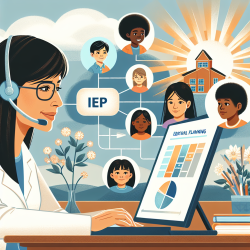Integrating Spirituality in Recovery: Enhancing Mental Health Outcomes
For practitioners working with individuals diagnosed with severe and persistent mental illness (SPMI), the integration of spirituality into recovery programs can significantly enhance the recovery process and improve psychological well-being. Recent research by Saiz et al. (2021) highlights the profound impact of spirituality on the recovery journey of individuals with SPMI, suggesting that spirituality may even surpass traditional employment factors in predicting recovery outcomes.
The Role of Spirituality in Recovery
Spirituality, as defined by Cook, extends beyond religious practices to encompass interpersonal relationships, self-knowledge, and the search for meaning and purpose in life. This broader understanding of spirituality is crucial in recovery from SPMI, where individuals often face challenges such as psychotic symptoms, social integration issues, and treatment adherence.
The study conducted by Saiz et al. utilized various assessment tools, including the Recovery Assessment Scale and the Functional Assessment of Chronic Illness Therapy—Spiritual Well-Being (FACIT-Sp12), to explore the relationship between spirituality, employment, and recovery. The findings indicated that the dimension of meaning and peace from the FACIT-Sp12 emerged as a significant predictor of recovery, overshadowing traditional employment-related factors such as job skills.
Implementing Spirituality in Practice
For practitioners, integrating spirituality into recovery programs involves several key steps:
- Assess Spiritual Needs: Utilize tools like the Daily Spiritual Experience Scale to gauge the spiritual needs and experiences of individuals in recovery.
- Foster Meaning and Peace: Encourage practices that promote inner peace and a sense of meaning, such as mindfulness, meditation, or reflective journaling.
- Incorporate Spiritual Discussions: Create a safe space for individuals to discuss their spiritual beliefs and how these beliefs can support their recovery journey.
- Collaborate with Spiritual Leaders: Engage with community spiritual leaders who can provide additional support and guidance to individuals seeking spiritual growth.
Encouraging Further Research
While the study by Saiz et al. provides valuable insights, further research is needed to explore the diverse ways spirituality can be integrated into mental health care. Practitioners are encouraged to conduct their own studies or collaborate with researchers to expand the understanding of spirituality's role in recovery.
By embracing a holistic approach that includes spirituality, mental health professionals can better support individuals with SPMI in achieving lasting recovery and enhanced psychological well-being. To delve deeper into the research findings, practitioners can access the original study: Spirituality and Employment in Recovery from Severe and Persistent Mental Illness and Psychological Well-Being.










